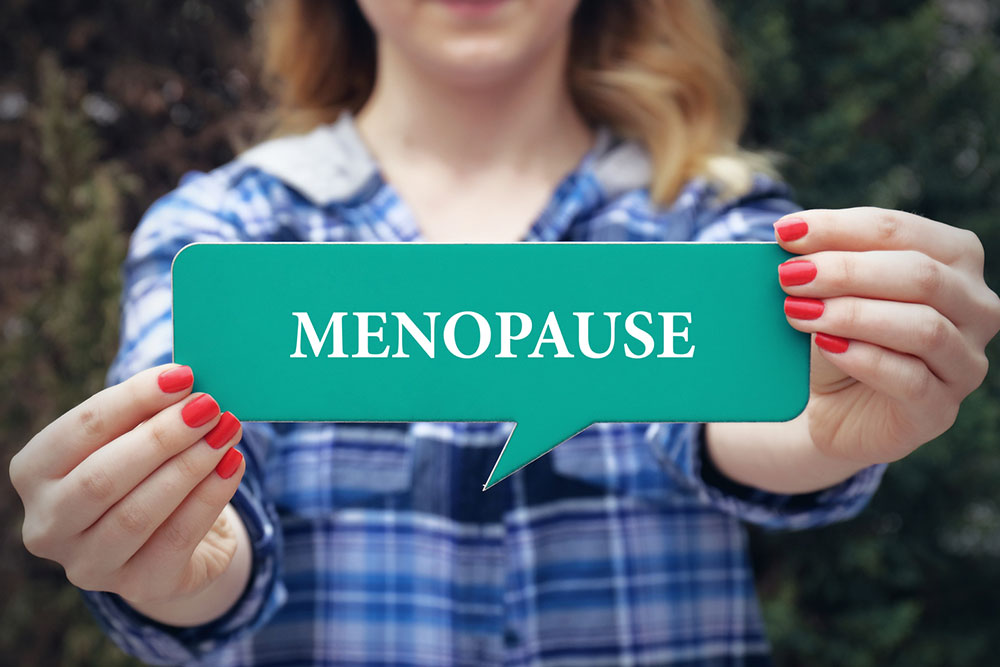Comprehensive Nutritional Strategies to Support Women Through Menopause
Menopause is a significant life transition that requires careful nutritional planning. This comprehensive guide highlights the top 5 foods and dietary habits that can help women alleviate symptoms, support bone health, and maintain vitality. From iron-rich foods to soy-based isoflavones and herbal remedies, discover effective strategies to navigate menopause smoothly and promote overall well-being during this natural phase of life.

Comprehensive Nutritional Strategies to Support Women Through Menopause
Menopause is a pivotal stage in a woman's life marked by the end of her reproductive years, usually occurring around the age of 50 to 52. This natural biological process signifies the cessation of menstrual cycles and involves complex hormonal changes, primarily a decline in estrogen and progesterone production. While menopause is a normal transition, it often presents various physical and emotional symptoms that can significantly impact a woman's quality of life. Managing these symptoms effectively requires a holistic approach, with nutrition playing a crucial role. By understanding the vital foods and dietary habits that support health during this phase, women can alleviate uncomfortable symptoms, strengthen their bones, boost energy levels, and promote overall well-being.
Emphasizing Iron-Rich Foods to Maintain Vitality
Iron is an indispensable mineral for women, especially during and after menopause, as it helps prevent anemia—a condition characterized by a deficiency of red blood cells leading to fatigue and weakness. Post-menopause, women's iron needs may decrease, but maintaining adequate levels is essential for overall vitality and immune function. Incorporate iron-rich foods into your daily diet to support energy and health. Good sources include lean cuts of red meat, poultry, eggs, fish such as salmon and tuna, and plant-based options like spinach, kale, lentils, and chickpeas. Nuts and seeds, particularly pumpkin seeds and cashews, also provide moderate iron and are easy to include in snacks or meals. To enhance iron absorption from plant sources, combine them with vitamin C-rich foods like oranges, strawberries, bell peppers, or tomatoes.
Boosting Heart Health with Dietary Fiber
As women reach menopause, estrogen levels decline, which can lead to an increased risk of cardiovascular disease. An effective way to counteract this risk is to increase intake of dietary fiber, known for its ability to lower cholesterol levels and improve heart health. Foods high in fiber include a variety of fruits, vegetables, whole grains, legumes, nuts, and seeds. Aim for at least 21 grams of dietary fiber daily, but higher intake may provide additional benefits. Incorporate oats, barley, brown rice, whole wheat bread, beans, lentils, and fresh fruits like apples, berries, and pears into your meals. High-fiber diets not only promote heart health but also improve digestion, control blood sugar levels, and support weight management—factors crucial during menopause.
Ensuring Adequate Calcium for Bone Strength
The decline in estrogen levels during menopause accelerates bone resorption, increasing the risk of osteoporosis—a condition characterized by brittle and fragile bones. To counteract this, it is vital to consume sufficient calcium to support bone density. The recommended daily intake of calcium for women over 50 is around 1200 milligrams. Incorporate calcium-rich foods such as low-fat or fat-free dairy products—including milk, yogurt, and cheese—along with leafy green vegetables like broccoli and bok choy. Fatty fish like salmon and sardines provide both calcium and omega-3 fatty acids, promoting bone health and reducing inflammation. Legumes like lentils and chickpeas also contain calcium and are versatile inclusions in various dishes. Enhancing calcium intake through diet is an essential step in preventing osteoporosis and maintaining mobility and strength well into later years.
Harnessing Isoflavones from Soy for Menopause Symptom Relief
Soybeans and soy-based products are rich sources of isoflavones, plant-derived compounds that mimic estrogen in the body. These phytoestrogens have been extensively studied for their potential to alleviate menopause symptoms such as hot flashes, night sweats, and mood swings. Regular consumption of soy foods—like tofu, tempeh, soy milk, and edamame—can help balance hormonal fluctuations and reduce discomfort. Including a variety of soy products in your diet offers a natural and plant-based approach to managing menopause-related symptoms and supporting hormonal health. It’s advisable to consult with a healthcare provider before making significant dietary changes or starting soy supplements, especially for women with hormonal sensitivities or thyroid conditions.
Using Herbal Remedies to Improve Mood and Reduce Hot Flashes
Herbal supplements have been used for centuries to support women's health during menopause. Herbs such as ginseng and St. John’s Wort are known for their mood-enhancing and stress-reducing properties, helping to manage anxiety, depression, and mood swings common during this period. Ginseng may also improve energy levels and reduce hot flashes, while St. John’s Wort is often used for mild depression and emotional support. Incorporating herbal teas, tinctures, or supplements after consulting with a healthcare professional can provide additional relief. Remember, herbal remedies work best when combined with a balanced diet and a healthy lifestyle, including regular exercise and stress management techniques. These natural approaches offer a holistic way to navigate menopausal transitions with greater ease and emotional stability.
**In conclusion**, supporting women through menopause involves a comprehensive approach that prioritizes nutrition, lifestyle, and natural remedies. By including iron-rich foods to maintain vitality, increasing dietary fiber to promote heart health, ensuring adequate calcium intake for strong bones, incorporating soy for symptom relief, and utilizing herbal remedies to stabilize mood, women can effectively manage menopausal symptoms. The journey through menopause can be smoother with intentional dietary choices and holistic support, leading to a healthier, more balanced life during these transformative years.**Remember**, every woman's experience with menopause is unique, and it's important to tailor nutritional strategies to individual needs and consult healthcare professionals for personalized guidance. Embrace this new phase with confidence and care, prioritizing your health and well-being at every step.





